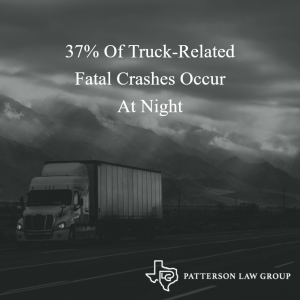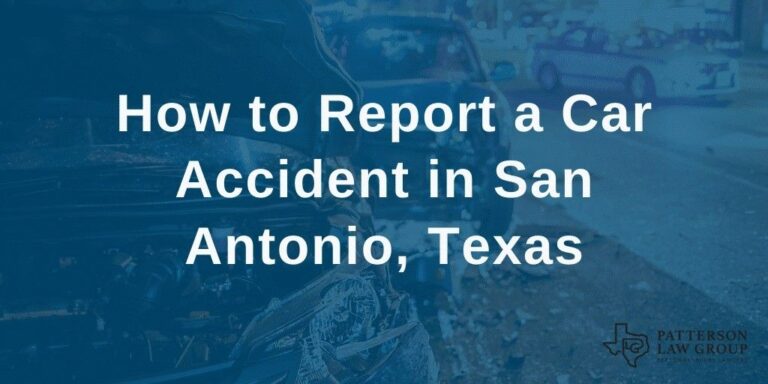Nighttime driving is often necessary for truck drivers, especially during long hauls. For the most part, driving at night can help avoid traffic, as only 25% of driving is done after 7pm, and oftentimes truckers take the majority of the road. However, nighttime is rife with auto accidents; and considering their size, trucks can cause a considerable amount of damage in an accident. This is an issue for Texans, especially, because Texas is the state with the highest number of fatal truck accidents. This is not acceptable, and it is crucial that we take safety seriously when it comes to truck driving.
Dangers of Nighttime Driving

Statistics show that 37% of truck-related fatal crashes happen at night. This makes sense considering the roles our cognitive function and visual ability play in driving. Fatigue and poor lighting play a big role in driver safety. Driving in rural areas can be exceptionally dangerous at night, as around 61 percent of fatal car accidents involving large trucks happened in rural areas. Lighting can pose a problem in these rural areas especially, since roadside lighting is sparse.
Therefore, an increase of nighttime roadside lighting could significantly improve the safety of the road. Of course, as individuals we cannot install roadside lights on our own. We can only make sure that we are prepared to be the safest drivers that we can be on the road. And there are some measures we can take to do so.
How Does Fatigue Increase the Risk of Accidents?
Fatigue can increase the risk of car accidents in several ways. In fact, the risks associated with fatigued driving are similar to the effects of driving while impaired. The lack of motor control, delayed reaction time, and risk of falling asleep at the wheel are dangerous factors that cannot be ignored. Fatigue increases the risk of accidents in the following ways.
- Reduced reaction time. When tired, your brain’s ability to react to changes in road conditions and other circumstances slows down. This reduced reaction time could be the difference between stopping in time and colliding with the vehicle in front of you.
- Risk of falling asleep. When you are fatigued, your natural body response is to fall sleep. This is the case even when you are driving. As a result, it is not uncommon for drowsy motorists to fall asleep behind the wheel before losing control of their vehicle. It is more common in cases where a motorist has been driving for a long time.
- Irritability. Fatigue also has the potential to increase driver irritability. While this does not directly increase your chances of an accident, it can impact your ability to make sound decisions while behind the wheel. For example, irritability can lead to aggressive driving that increases the chance of a crash.
- Drifting lanes. Drivers that are fatigued can lose focus while behind the wheel. As a result, they often drift or even swerve into another lane. This can cause an accident, especially when a driver drifts across the center line and into oncoming traffic.
- Poor judgment. Your ability to make decisions can be hindered by fatigue. It is difficult to think when you are tired, and this difficulty can impact your choices. For example, poor judgment or clouded thinking could make you respond inappropriately to an impending threat, like an obstacle in the road or an approaching vehicle.
Reducing The Chances of Trucking Accidents
In order to prevent road accidents while driving a truck, we have a few tips to help promote safe truck driving.
1. Eat Well
The food we eat can impact the way we feel, and poor food choices can lead to drowsiness. When pulling over for a snack, choose high-energy foods that will nourish you and put you in a safe state to drive.
2. Avoid Certain Medications
Many medications may cause drowsiness. Double check on your prescription medicines before taking them, and seek a non-drowsy alternative.
3. Get Enough Sleep
Lack of sleep is one of the most prevalent reasons for car accidents. It is crucial to get enough sleep before starting your journey. Take breaks from driving before you feel your driving becomes compromised from exhaustion. If you have a consistent night driving schedule, try to reset your circadian rhythm to the driving schedule.
4. Create Pockets of Space
A study on driver fatigue and alertness carried out by the U.S. Department of Transportation Federal Motor Carrier Safety Administration shows that the first hour of driving is often the most dangerous for truckers, since they start driving right when they wake up. Make sure you have time to acclimate before you start driving.
5. Understand the Roads
When drivers know what to expect on certain roads, it can help prepare them for possible danger. Because we care deeply about Texas drivers, Patterson Law Group has created an interactive map to help educate drivers on the most dangerous intersections in Fort Worth.
In Case of Trucker Accident
Car accidents, and truck-related car accidents, don’t usually just involve one person. The aftermath can be complex and tedious. Well-versed in traffic laws, our team at Patterson Law Group is here for you in the case of trucker-related collisions. If you have been in an accident involving a truck, please fill out the form on this page. We can provide you with a free case evaluation. You can also call or text us at (817) 784-2000.





